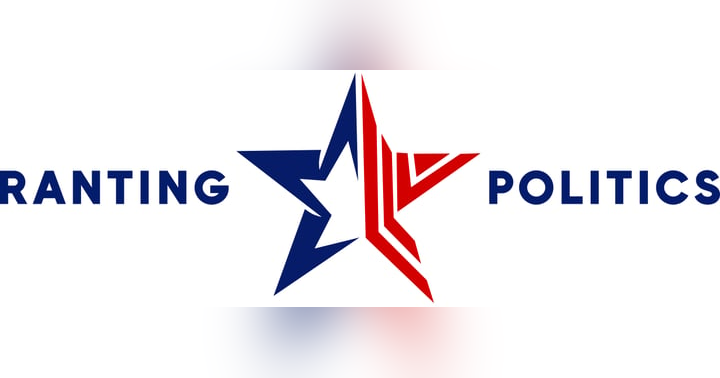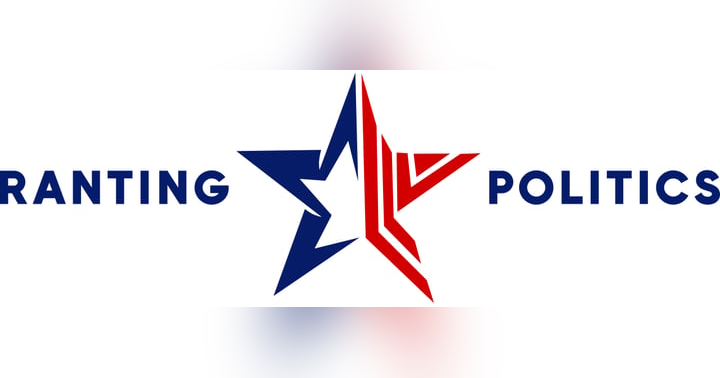Auto-Pen Pardons: Are They Legal?

RP Deep Think: In a move that has ignited a fresh wave of political and legal debate, former President Donald Trump has declared President Joe Biden's use of auto-pen technology for issuing pardons as "null and void." This challenge raises fundamental questions about the legitimacy of automated signatures in presidential actions, the legal precedents that govern such practices, and the potential ramifications for those affected, including members of the January 6th Committee and others awaiting presidential clemency. In this blog post, we will delve into the intricacies of this controversy, examining the arguments from both sides, the historical context, and the potential legal battles that may lie ahead. This topic was covered in our latest podcast episode, Deportation Flights Showdown, Trump Putin Meet Set, AutoPen Pardons, VOA Goes Silent, McGregor at White House, which you can check out for a deeper dive into this and other pressing political issues.
Trump's Challenge to Biden's Pardons
The controversy began when former President Trump publicly questioned the validity of pardons issued by President Biden using an auto-pen. Trump's declaration, made via his social media platform, asserted that the use of automated signatures renders these pardons illegitimate and unenforceable. This challenge immediately sparked a debate among legal scholars, political analysts, and the public, with many questioning the basis for Trump's claim and the potential consequences for those who had received these pardons.
What is an Auto-Pen and How is it Used?
An auto-pen, also known as an autopen or signing machine, is a mechanical device used to automatically reproduce a person's signature. It replicates the signature process, allowing for the signing of numerous documents in a consistent and efficient manner. Auto-pens have been used by government officials, including presidents, for decades to sign routine documents, letters of commendation, and other paperwork that does not require the president's personal attention. The use of auto-pens is intended to streamline administrative processes and allow the president to focus on more critical tasks.
The use of an auto-pen is typically governed by strict protocols and procedures to ensure authenticity and prevent misuse. The device is usually operated by authorized staff under the direct supervision of a designated official. A log is maintained to record the documents signed using the auto-pen, and the signature is often accompanied by an indication that it was produced by mechanical means.
Trump's Declaration: 'Null and Void'
Trump's declaration that Biden's auto-pen pardons are "null and void" is based on the argument that a presidential pardon is a personal act that requires the president's direct and deliberate involvement. According to this view, the use of an automated device to sign pardons undermines the gravity and solemnity of the pardon power, rendering the resulting documents invalid. Trump's supporters argue that a pardon is a highly discretionary act that requires the president to carefully consider the merits of each case and make a personal judgment about whether to grant clemency. They contend that the use of an auto-pen reduces the pardon process to a mere administrative formality, devoid of the personal attention and consideration that it deserves.
Legal Precedents for Presidential Signatures
The legal precedents for presidential signatures are complex and somewhat ambiguous. The Constitution does not explicitly define the requirements for presidential signatures, leaving room for interpretation and debate. Historically, presidents have used various methods to sign documents, including manual signatures, rubber stamps, and auto-pens. The courts have generally deferred to the executive branch on matters of internal procedure, including the manner in which the president signs official documents.
However, there are some legal scholars who argue that certain types of documents, such as pardons, require a more personal form of signature to ensure their validity. They point to the historical significance of the pardon power and the potential for abuse if it is not exercised with due care and attention. These scholars argue that the use of an auto-pen for pardons could be seen as an abdication of the president's responsibility to personally review and approve each case.
The Stance of the Justice Department
The Justice Department's stance on the legality of auto-pen signatures is likely to play a crucial role in determining the outcome of this controversy. Historically, the Justice Department has taken a pragmatic approach to the issue, recognizing the practical necessity of using auto-pens for routine administrative tasks. However, the department has also acknowledged the importance of ensuring the authenticity and integrity of presidential signatures, particularly in cases involving significant legal or policy implications.
In the case of Biden's auto-pen pardons, the Justice Department would likely conduct a thorough review of the circumstances surrounding their issuance to determine whether they comply with established legal standards and internal procedures. The department would consider factors such as the level of oversight and control exercised by the president and his staff, the consistency of the signatures produced by the auto-pen, and the potential for fraud or abuse.
Impact on Affected Individuals: January 6th Committee Members and Others
The uncertainty surrounding the validity of Biden's auto-pen pardons has created significant anxiety and uncertainty for those who have received them. This is especially true for members of the January 6th Committee and others who have been targeted by the previous administration and are now awaiting presidential clemency. If Trump's challenge is successful, these individuals could face renewed legal jeopardy, including the possibility of prosecution, imprisonment, or other adverse consequences.
The potential impact on these individuals is particularly concerning given the politically charged nature of the January 6th investigation and the ongoing debate about the appropriate response to the events of that day. If the pardons are invalidated, it could further inflame political tensions and undermine public confidence in the fairness and impartiality of the justice system.
Broader Implications for Executive Actions
The controversy over Biden's auto-pen pardons has broader implications for the future of executive actions. If the courts rule that auto-pen signatures are invalid for certain types of documents, it could significantly restrict the president's ability to delegate administrative tasks and streamline government operations. This could lead to increased inefficiency and delays in the implementation of presidential policies and initiatives.
Conversely, a ruling that upholds the validity of auto-pen signatures could embolden future presidents to use automated devices more extensively, potentially raising concerns about transparency, accountability, and the potential for abuse. It is essential to strike a balance between the need for efficiency and the importance of ensuring that presidential actions are taken with due care and consideration.
Potential Legal Battles and Challenges
The legal challenges to Biden's auto-pen pardons could take several forms. Trump or other interested parties could file lawsuits seeking to invalidate the pardons, arguing that they were not properly signed by the president. These lawsuits could raise questions about the legal requirements for presidential signatures, the scope of the pardon power, and the appropriate role of the courts in reviewing executive actions.
Alternatively, the Justice Department could initiate legal proceedings to defend the validity of the pardons, arguing that they comply with established legal standards and internal procedures. These proceedings could involve expert testimony, documentary evidence, and legal arguments from both sides. The outcome of these legal battles could have far-reaching consequences for the balance of power between the executive and judicial branches and the future of presidential pardons.
The Public and Political Reaction
The controversy over Biden's auto-pen pardons has sparked a wide range of public and political reactions. Supporters of Trump have applauded his challenge, arguing that it is necessary to protect the integrity of the pardon power and hold Biden accountable for his actions. Critics of Trump have accused him of engaging in political gamesmanship and attempting to undermine the legitimacy of the Biden administration.
The public reaction has been similarly divided, with some expressing concerns about the potential for abuse and others defending the use of auto-pens as a practical necessity. The political debate over this issue is likely to continue for the foreseeable future, as both sides seek to mobilize public opinion and shape the legal and political landscape.
Conclusion: The Future of Auto-Pen Pardons
The controversy surrounding President Biden's use of auto-pen pardons raises important questions about the intersection of technology, law, and politics. While the use of auto-pens is a long-standing practice in government, its application to sensitive acts such as presidential pardons invites scrutiny and debate. The legal precedents are unclear, the political stakes are high, and the potential consequences for affected individuals are significant. This matter could reshape how presidential actions are executed and perceived. The future of auto-pen pardons will depend on the outcome of potential legal battles and the evolving political landscape. As this issue unfolds, it is essential to engage in informed and thoughtful discussions about the appropriate balance between efficiency, transparency, and accountability in presidential decision-making. Don't forget to listen to our related episode on this topic, Deportation Flights Showdown, Trump Putin Meet Set, AutoPen Pardons, VOA Goes Silent, McGregor at White House, for more in-depth analysis and perspectives.









